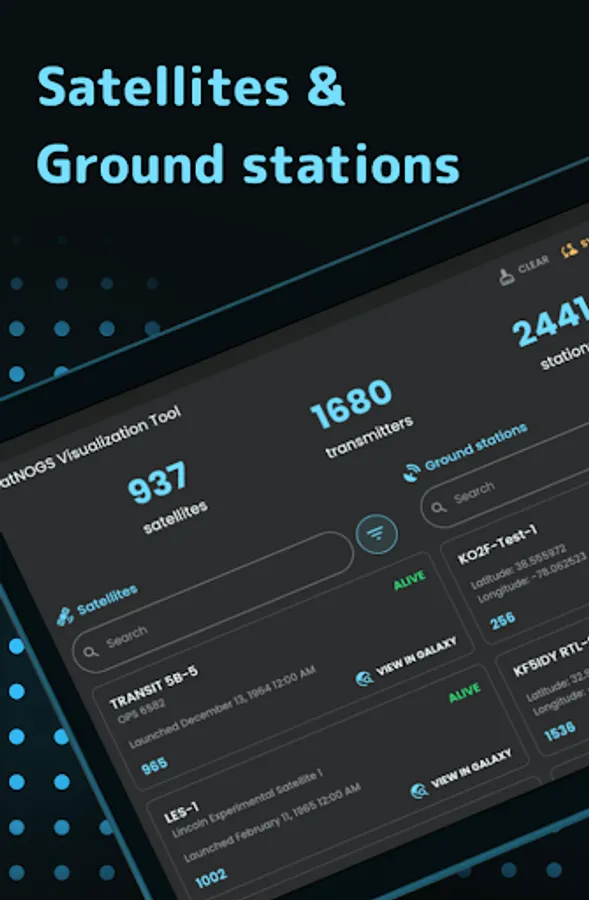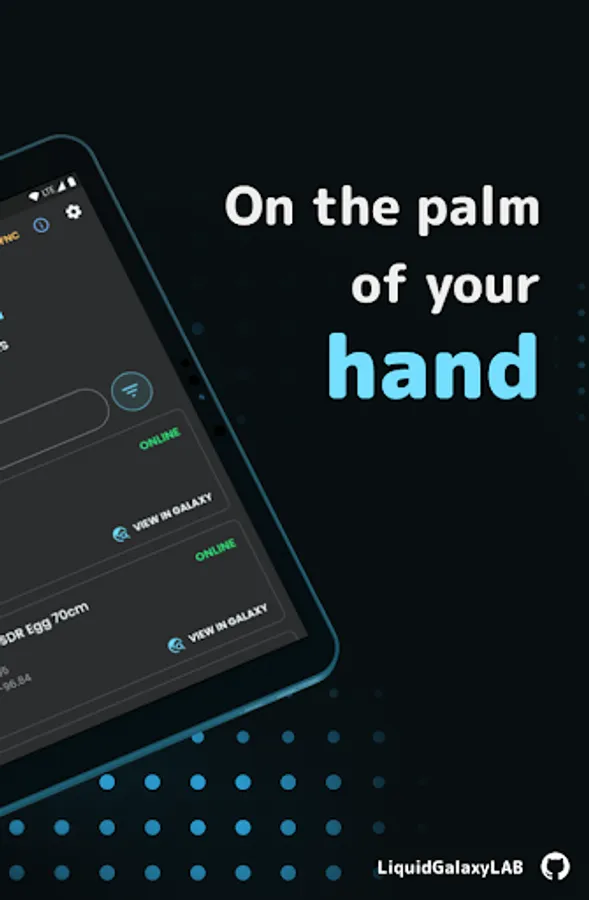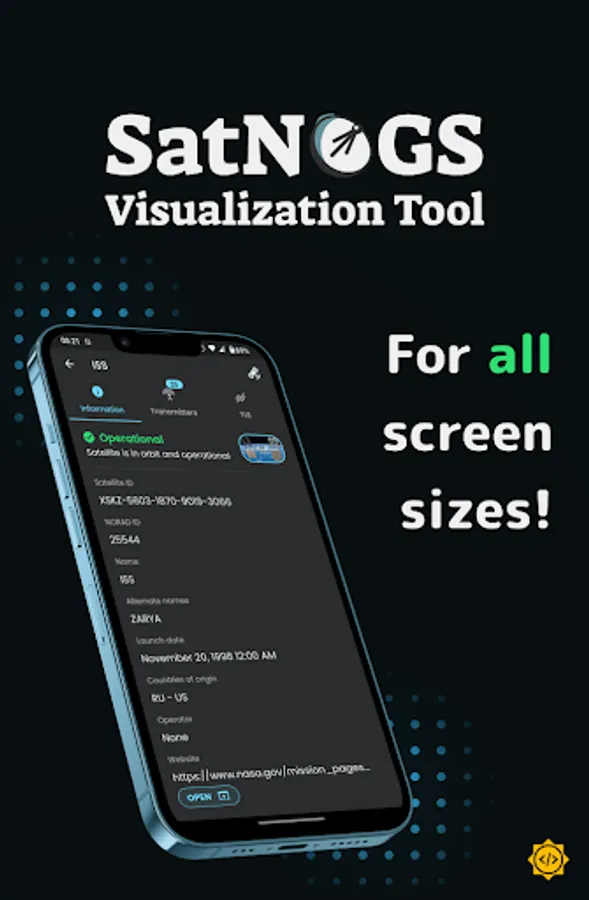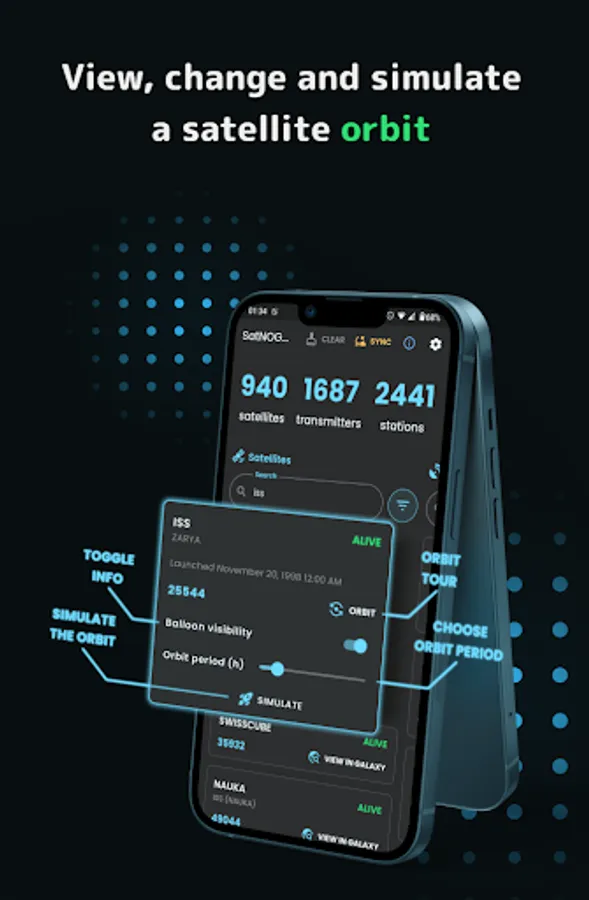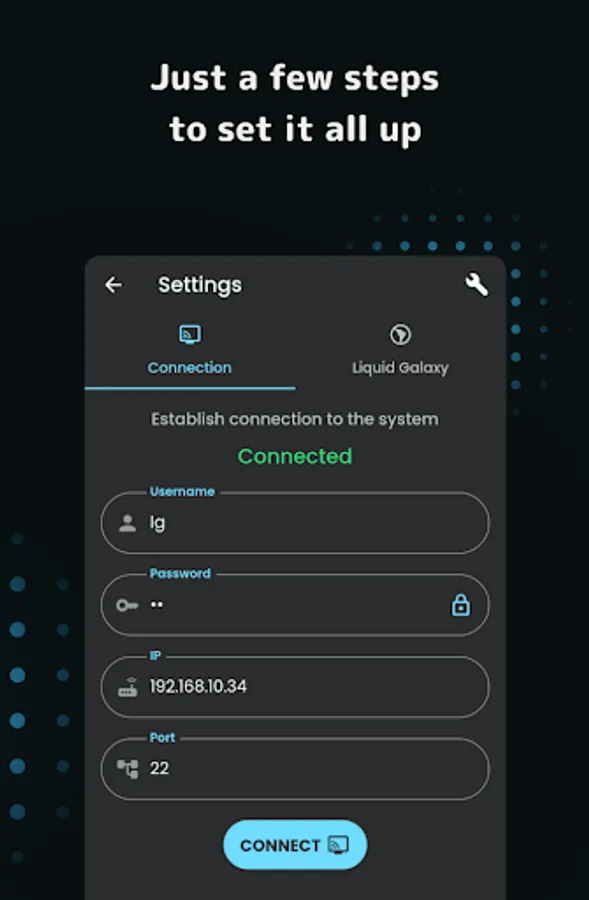About SatNOGS Visualization Tool
The project aims to collect and show data from satellites and ground stations using the SatNOGS database and API.
With the data available into the app, is possible to send it to the Liquid Galaxy system to be shown into Google Earth.
All this information is included in the SatNOGS (Satellite Networked Open Ground Station) database.
The ground stations are antennas that capture transmissions from satellites. Using this network, SatNOGS created a database with all the information captured since its creation. We will use this database to get the information we need, since it is open and free. It contains information about the satellites, the data received in the communication, the protocols of transmission accepted and more.
An important step to take is configure the slave screens for refreshing, otherwise the logos and the info balloon will not be visible. Follow the steps below to activate it:
1. With Google Earth opened, press CTRL+ALT+B on the keyboard or click on the VIEW tab on the tab bar and then Sidebar.
2. Into the Sidebar, expand the KML Sync folder.
3. Right click on the Solo KML folder and click on Properties.
4. Go to the Refresh tab and change the Time-Based Refresh to: Periodically | 0hrs | 0mins | 2secs
- The recomended secs if from 1 to 3 seconds.
- Click on OK and close the side bar by following the first step.
Done! Remember to do it for all slave screens so all of them will be reactive.
This project has been started as a Google Summer of Code 2022 project with the Liquid Galaxy Organization, developed by Michel Agarra Barros.
Lleida Liquid Galaxy LAB support: Pau Francino
Liquid Galaxy Org Director: Andreu Ibañez
App released by Alejandro Illán Marcos
With the data available into the app, is possible to send it to the Liquid Galaxy system to be shown into Google Earth.
All this information is included in the SatNOGS (Satellite Networked Open Ground Station) database.
The ground stations are antennas that capture transmissions from satellites. Using this network, SatNOGS created a database with all the information captured since its creation. We will use this database to get the information we need, since it is open and free. It contains information about the satellites, the data received in the communication, the protocols of transmission accepted and more.
An important step to take is configure the slave screens for refreshing, otherwise the logos and the info balloon will not be visible. Follow the steps below to activate it:
1. With Google Earth opened, press CTRL+ALT+B on the keyboard or click on the VIEW tab on the tab bar and then Sidebar.
2. Into the Sidebar, expand the KML Sync folder.
3. Right click on the Solo KML folder and click on Properties.
4. Go to the Refresh tab and change the Time-Based Refresh to: Periodically | 0hrs | 0mins | 2secs
- The recomended secs if from 1 to 3 seconds.
- Click on OK and close the side bar by following the first step.
Done! Remember to do it for all slave screens so all of them will be reactive.
This project has been started as a Google Summer of Code 2022 project with the Liquid Galaxy Organization, developed by Michel Agarra Barros.
Lleida Liquid Galaxy LAB support: Pau Francino
Liquid Galaxy Org Director: Andreu Ibañez
App released by Alejandro Illán Marcos
